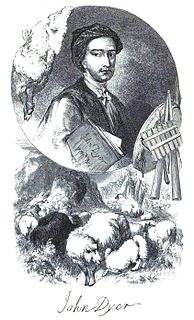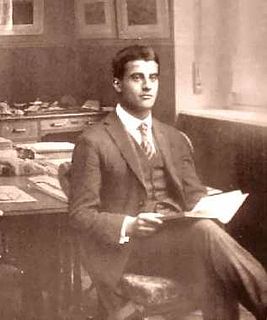A Quote by Edward Gibbon
An absolute monarch, who is rich without patrimony, may be charitable without merit; and Constantine too easily believed that he should purchase the favour of Heaven if he maintained the idle at the expense of the industrious, and distributed among the saints the wealth of the republic.
Related Quotes
The whole people must take upon themselves the education of the whole people, and must be willing to bear the expenses of it. There should not be a district of one mile square, without a school in it, not founded by a charitable individual, but maintained at the public expense of the people themselves.
Yet the true friend of the people should see that they be not too poor, for extreme povery lowers the character of the democracy; measures therefore should be taken which will give them lasting prosperity; and as this is equally the interest of all classes, the proceeds of the public revenues should be accumulated and distributed among its poor, if possible, in such quantities as may enable them to purchase a little farm, or, at any rate, make a beginning in trade or husbandry.
Among well bred people a mutual deference is affected, contempt for others is disguised; authority concealed; attention given to each in his turn; and an easy stream of conversation maintained without vehemence, without interruption, without eagerness for victory, and without any airs of superiority.
The much-maligned idle rich have received a bad rap: They have maintained their wealth while many There is scarcely an instance of a man who has made a fortune by speculation and kept it. Andrew Carnegie of the energetic rich, aggressive real estate operators, corporate acquirers, oil drillers, etc. have their fortunes disappear.
Charity is commendable; everyone should be charitable. But justice aims to create a social order in which, if individuals choose not to be charitable, people still don't go hungry, unschooled or sick without care. Charity depends on the vicissitudes of whim and personal wealth; justice depends on commitment instead of circumstance.
According to Gandhi, the seven sins are wealth without works, pleasure without conscience, knowledge without character, commerce without morality, science without humanity, worship without sacrifice, and politics without principle. Well, Hubert Humphrey may have sinned in the eyes of God, as we all do, but according to those definitions of Gandhi's, it was Hubert Humphrey without sin.
Lastly, we must be holy, because without holiness on earth - we will never be prepared to enjoy Heaven. ...I do not know what others may think - but to me it does seem clear that Heaven would be a miserable place to an unholy man. It cannot be otherwise. People may say in a vague way, that they "hope to go to Heaven, but they do not consider what they say. There must be a certain "fitness for the inheritance of the saints in light.
The education here intended in not merely that of the children of the rich and noble, but of every rank and class of people, down to the lowest and the poorest. It is not too much to say that schools for the education of all should be placed at convenient distances, and maintained at the public expense.
We may live without poetry, music and art; We may live without conscience, and live without heart; We may live without friends; we may live without books; But civilized man cannot live without cooks. . . . He may live without books,-what is knowledge but grieving? He may live without hope,-what is hope but deceiving? He may live without love,-what is passion but pining? But where is the man that can live without dining?






































